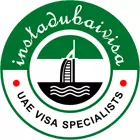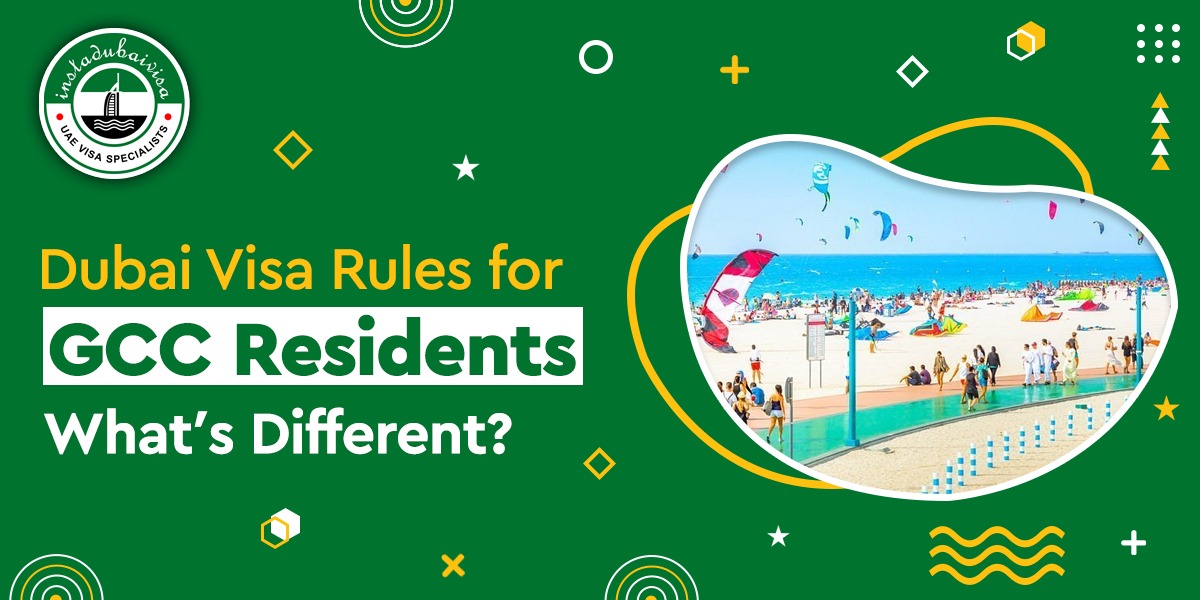Table of Contents
-
Introduction
-
Brief overview of Dubai as a travel destination for GCC residents
-
Importance of understanding visa rules for seamless travel
-
Purpose of the guide: Simplifying Dubai visa rules for GCC residents
-
-
Who Are GCC Residents?
-
Definition of GCC residents vs. GCC nationals
-
Countries included in the Gulf Cooperation Council (GCC)
-
Importance of residency status for visa applications
-
-
Dubai Visa Rules for GCC Residents
-
Overview of e-visa requirements
-
Visa validity and stay duration
-
Single-entry vs. multiple-entry visas
-
Special provisions for certain professions
-
-
Step-by-Step Guide to Applying for a Dubai Visa
-
Choosing the right visa type
-
Required documents for GCC residents
-
Online application process via official portals or trusted platforms like instadubaivisa.com
-
Processing time and tips for approval
-
-
Common Mistakes to Avoid
-
Incomplete documentation
-
Ignoring profession-specific rules
-
Missing deadlines or overstaying
-
-
Benefits of the Dubai Visa for GCC Residents
-
Simplified travel to the UAE
-
Flexibility for business, tourism, or family visits
-
Exploring Dubai’s iconic attractions with ease
-
-
Conclusion
-
Recap of key points
-
Call-to-action: Apply for your Dubai visa through instadubaivisa.com
-
Encouragement to plan your Dubai adventure
-
-
FAQs
-
Common questions about Dubai visa rules for GCC residents
-
Introduction: Why Dubai Beckons GCC Residents
Dubai, the dazzling jewel of the UAE, attracts millions with its futuristic skyline, cultural richness, and vibrant lifestyle. For GCC residents, traveling to Dubai is easier than ever, thanks to streamlined visa processes. However, understanding Dubai visa rules for GCC residents is crucial to ensure a hassle-free journey. Whether you're planning a quick getaway to explore the Burj Khalifa or a business trip to network in this global hub, this guide from instadubaivisa.com breaks down everything you need to know about securing your Dubai visa.
Who Are GCC Residents?
The Gulf Cooperation Council (GCC) comprises six nations: Bahrain, Kuwait, Oman, Qatar, Saudi Arabia, and the UAE. GCC residents are individuals holding a valid residency permit in any of these countries, regardless of their nationality. Unlike GCC nationals, who enjoy visa-free entry to the UAE, GCC residents must apply for an e-visa before traveling to Dubai. This distinction is critical, as visa rules vary significantly based on residency status. For example, a professional working in Saudi Arabia with a valid Iqama is considered a GCC resident and must follow specific visa protocols.
Key Points:
-
GCC Residents: Expatriates or foreign nationals with residency permits in GCC countries.
-
GCC Nationals: Citizens of GCC countries who don’t need a pre-arranged visa for UAE entry.
-
Why It Matters: Residency status determines your eligibility and application process.
Dubai Visa Rules for GCC Residents: What You Need to Know
Navigating Dubai visa rules for GCC residents can seem daunting, but the process is straightforward when you know the requirements. Since April 2016, GCC residents must obtain an e-visa before arriving in the UAE, as visa-on-arrival is no longer available for most. Here’s a detailed breakdown of the rules:
E-Visa Requirement
All GCC residents, regardless of nationality, must apply for an e-visa through official portals like the General Directorate of Residency and Foreigners Affairs (GDRFA) Dubai or trusted platforms like instadubaivisa.com. The e-visa is sent to your registered email upon approval, making the process entirely online.
Visa Validity and Stay Duration
-
30-Day Visa: Allows a stay of 30 days from the date of entry, extendable once for an additional 30 days.
-
60-Day Visa: Permits a 60-day stay, ideal for longer visits or business trips.
-
Entry Types: Single-entry or multiple-entry options are available, depending on your travel needs.
Special Provisions for Professions
GCC residents working in high-level professions (e.g., doctors, engineers, managers) may qualify for a 30-day non-renewable visa on arrival at UAE airports. However, this applies only to specific job titles listed by the UAE government. Always verify your profession’s eligibility before traveling.
Key Documents
To apply for a Dubai visa, GCC residents typically need:
-
A passport valid for at least 6 months from the date of entry.
-
A valid GCC residency permit (e.g., Iqama) with at least 3 months of validity.
-
A recent passport-sized photograph with a white background.
-
Additional documents like flight tickets or accommodation proof (if required).
Read Also - How to Get a Dubai Visa for GCC Residents
Step-by-Step Guide to Applying for a Dubai Visa
Securing your Dubai visa as a GCC resident is simple when you follow these steps:
-
Choose the Right Visa Type: Decide between a 30-day or 60-day visa, and select single or multiple-entry based on your travel plans.
-
Gather Required Documents: Ensure your passport, residency permit, and photograph meet the specified criteria.
-
Apply Online: Use the GDRFA Dubai portal, the Federal Authority for Identity and Citizenship (ICP), or a reliable service like instadubaivisa.com for a seamless application process.
-
Pay the Fee: Fees vary based on visa type and duration. Use a secure payment gateway to complete the transaction.
-
Receive Your Visa: Once approved (typically within 24-72 hours), your e-visa will be emailed to you. Print a copy to carry during travel.
Common Mistakes to Avoid
To ensure a smooth visa application process, steer clear of these pitfalls:
-
Incomplete Documentation: Missing or invalid documents, like an expired passport or residency permit, can lead to rejection.
-
Ignoring Profession Rules: Changing your job title after applying may invalidate your visa, especially for on-arrival eligibility.
-
Overstaying: Exceeding your visa’s validity incurs fines of 100 AED per day, plus additional penalties.
Benefits of the Dubai Visa for GCC Residents
The UAE’s visa system for GCC residents is designed for convenience and flexibility:
-
Simplified Process: The online application eliminates the need for in-person visits to embassies.
-
Travel Flexibility: Choose visa types that suit short trips, family visits, or business meetings.
-
Access to Dubai’s Wonders: From the Dubai Mall to desert safaris, your visa unlocks unforgettable experiences.
Read Also - How Much Does It Cost to Get a Dubai Visa for GCC Residents?
Conclusion
Understanding Dubai visa rules for GCC residents is your ticket to exploring the UAE’s vibrant landscapes and cultural treasures. By following the outlined steps and avoiding common mistakes, you can secure your e-visa with ease. Ready to embark on your Dubai adventure? Visit instadubaivisa.com to apply for your visa today and experience the magic of Dubai without the hassle.
FAQs
Q: Do GCC residents need a visa to enter Dubai?
A: Yes, GCC residents (non-nationals) must apply for an e-visa before traveling to Dubai. GCC nationals, however, enjoy visa-free entry.
Q: How long does it take to process a Dubai visa for GCC residents?
A: Standard processing takes 24-72 hours, but applying early is recommended to avoid delays.
Q: Can I extend my Dubai visa as a GCC resident?
A: Yes, a 30-day visa can be extended once for an additional 30 days. Check with instadubaivisa.com for extension details.
Q: What happens if I change my profession after getting a visa?
A: A change in profession may invalidate your visa, especially for on-arrival eligibility. You may need to apply for a new e-visa.



